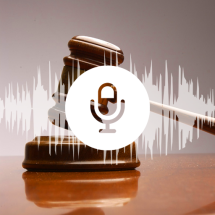Texas Possession of Marijuana Defense Attorney
Attitudes about marijuana have been changing at a rapid pace given the current political climate surrounding the possibility of legalization of its use. Many states in the U.S have already passed laws permitting the medical use of marijuana, de-criminalizing petty offenses, and even has made it perfectly legal the recreational use in some states. Texas, by contrast, proceeds to punish marijuana offenses in much the same way, just as seriously as it always has in the past. Regardless of what you may think of whether it should be legal or not, possession of marijuana is still illegal in Texas, and it is punished in the same way in the same fashion it has done for as long as I can remember. If a person is found to be possession of marijuana, make no mistake about it, one likely will still be arrested and taken to jail.
What about Cite and Release Programs?
The city of Dallas, however, has recently enacted a local “cite and release” policy, where police officers have been instructed just to cite individuals if found with marijuana in their possession, instead of making an actual arrest and taking the person to jail. The individual is given a citation for the offense, in much the same manner as when one gets pulled over and is given a ticket for speeding.
However, even if a person is just cited and released for the offense, they still are forced to handle the charge in the same manner in the courts as if an arrest was made, as the punishment and criminal charge remain the same in Texas. As of now, Texas legislators have not enacted any new laws decriminalize or make legal the use of marijuana.
Under the cite and release program in Dallas, a person stopped for less than four ounces of marijuana is given a citation instead of being arrested. However, I have found that a misconception I have found a very big misconception exists with many in the general public because they now believe it is perfectly legal and okay to go around with marijuana freely. Many people now mistakenly believe that because of the cite and release program, that it is not a big deal and will not have any real or meaningful consequences. Some people even believe that the citation given is just similar to a court order to appear, in the same fashion as with routine traffic tickets. Nothing could be further from the truth. In fact, even if you were just cited, you will have to appear in court you will have to face having to navigate through the criminal legal justice system, you will be fingerprinted at the jail and booked in, you will have to appear at various court appearances, and it will be prosecuted for a misdemeanor drug possession offense, as either a Class A or a Class B misdemeanor offense.
Possession of Marijuana Laws in Texas
The term marijuana possession refers to the criminal offense of having the care, custody or control of a usable amount of marijuana. The state often may have a difficult time proving all of the legal elements needed for a conviction to result, even in routine simple possession cases.
Under Section 481.120 of the Texas Health and Safety Code, A person commits an offense of possession of marijuana if a person knowingly or intelligently possesses a usable quantity of marijuana. Section 1.07(a)(39) of the Texas Penal Code defines possession as having “actual care, custody, control, or management.” Thus, an individual found with marijuana in their possession by a police officer in Texas can be arrested and taken to jail merely having it somewhere that could be legally defined as being in possession of, even if it was being used solely for psychological or a medicinal purpose.
“Possession” of any controlled substance in Texas, legally speaking, can be either physical or constructive. Physical possession is exactly what it sounds like, as long as it is clearly demonstrated that a person had the care, custody, control” of the illegal substance. Constructive possession, however, means that you can be charged with possession in the same fashion, even if you are not physically exercising control over an object. Constructive possession basically means that one can still be charged with the possession of an illegal substance, under the theory that while the item may not have been in the immediate control of an individual, the contraband was in a place over which they exercised control.
Constructive possession is a legal theory whereby while a person may not have been in direct physical control of an object, the person must have had knowledge of the object and its location. In order to prove possession under this theory, the state would have to prove not only did the individual have knowledge of the illegal drugs, but they must also show the individual knew where the contraband was located in a place in or around where they were discovered, but also that the person knew, or should have known, that the items found were illegal to be in possession of.
Potential Areas of Inquiry
It is always necessary for an attorney to try and ascertain if any constitutional rights were violated, including whether a person was lawfully detained or arrested. The Fourth Amendment to the United States Constitution guarantees a person the right to be free from unreasonable searches and seizures. As such, something that potentially could provide for a viable defense is by possibly arguing how the evidence was gathered in an illegal manner, and thus should not be admissible in court. This could be asserted in cases where a search was not conducted with the requisite amount of reasonable suspicion, or that an arrest was made without the probable cause to legally make an arrest, Many people are shocked to learn how police officers routinely and with incredible frequently violate the basic and fundamental rights afforded to everyone under the U.S. Constitution.
The 4th amendment of the U.S. Constitution mandates:
“The right of the people to be secure in their persons, houses, papers, and effects, against unreasonable searches and seizures, shall not be violated, and no warrants shall issue, but upon probable cause, supported by oath or affirmation, and particularly describing the place to be searched, and the persons or things to be seized. Relevant questions might include whether or not authorities had a legal and valid search warrant if a person’s home was searched and something illegal was found. If this is the case and you have reason to believe that a warrant acted properly obtained, you are allowed to examine it to review what its contents. In order for a search warrant to be valid, it must meet specific requirements as prescribed by law, which include the following:
- The law enforcement officer must have filed and requested for the warrant to be issued in good faith;
- It must be based on sufficient and reliable information indicating the probable cause for exists to search,
- The warrant can only be issued by a neutral and detached magistrate, who will conduct a review for the grounds listed for its issuance, and must be signed by the magistrate prior to its execution; and
- it should specifically list the location of the place to be searched and the exact items to be seized.
Regardless of anything else, all individuals have has basic rights in our country that must be guarded and protected.
Possible Penalties for Possession of Marijuana Offense
A common misunderstanding is that an individual who is charged with an in possession of marijuana does take the matter seriously, and some believe it is no more severe then that of receiving a speeding ticket, but this is far from true. In Dallas, there is a policy for just “citing and releasing” an individual for a charge of possession of marijuana, instead of taking the person to jail and arresting them immediately. However, it is still punishable with the same severity as it always has been. The punishment for possession of marijuana is determined based specific ranges of punishment associated with the quantity:
- A usable quantity of at least 2oz: Class B Misdemeanor offense, which has a potential range of punishment of not less than 72 hours confinement in jail, and not more than 180 days, and a fine not to exceed $2,000.
- 2oz to 4oz: Class: Class A Misdemeanor offense, which has a potential range of punishment of confinement jail for a term not to exceed one year; and a fine not to exceed $4,000.
- 4oz to 5lbs: State Jail Felony offense, which has a potential range of punishment that can include confinement in a state jail facility for any term not to exceed more than two years or less than 180 days, and the possible imposition of a fine not to exceed $10,000.
- 5lbs to 50lbs: 3rd Degree Felony offense, which has a potential range of punishment of possible imprisonment in the Texas Department of Criminal Justice for any term of confinement of not more than 10 years or less than two years, and a fine not to exceed $10,000.
- 50lbs to 2,000lbs: 2nd Degree Felony offense, which has a potential range of punishment of possible imprisonment in the Texas Department of Criminal Justice for any term of confinement of not more than 20 years or less than 2 years, and a fine not to exceed $10,000.
- -More than 2,000 lbs: Punishable with possible imprisonment in the Texas Department of Criminal Justice for a possible life sentence, and with a minimum term not less than five years, and the possible imposition of a fine not to exceed $50,000.
Potential Defenses of Possession of Marijuana
If you have been charged with an offense of possession of marijuana in Texas there are various ways in which one can contest the nature of the charge. As stated previously, one can only be charged with the offense if the there is some form of possession (which can be actual or constructive possession). Being present, have the ability and accessibility, or being in close proximity to contraband may be sufficient to establish possession. Regardless, however, possession is something which can always be argued when the situation dictates. The State must present evidence affirmatively linking the individual to the illicit substance in order to establish some form of a connection to establish the element of possession. There are three main ways which can be viable ways to assert a viable defense to the offense of possession of marijuana, or the possession of any other illegal substance:
- Possession –
An individual must be in possession of an illegal drug. Possession involves the exercise of control, management, care, custody or control over an, controlled. Possession can also be constructive when an individual has the ability to exercise some form of control over (such as in a passenger seat while someone else is driving the car). if an individual is not in legal possession (either constructively or actual possession), the State is will be required to present proper proof, based on by the facts specific to the case), affirmatively linking the individual to the whatever was illegally obtained.
An individual must demonstrate legal possession of an illegal drug in order to be found guilty for the offense of possession. If the person does not demonstrate any exercise, dominion, or control over the contraband, and also does not have any knowledge that something may be illegal, has no knowledge of its illegal nature, one cannot be legally charged with b even if they are in close proximity with the object this would not be enough to proved construction possession. Remember, there is always a difference between being in “actual possession” and “constructive ownership .” Active possession would be if a scenario where you physically have something illegal on you, such as in your pocket, in your jacket, in your car, or purse. that the medication was in your individual, like in your pocket in a tote or purse. Constructive possession refers to a scenario where you may not be in actual in physical contact with something contraband, but you may know where they are and have the ability to control and move them. However, you still know where they’ve been and you’re in charge of those. This includes knowingly having them concealed in a vehicle or your home.
This is important to keep in mind because, in order to convict you of drug possession, it must be proven that you fit one of these categories. If you did not have knowledge of drugs in your home or car, or someone else had “control” of the substance, this may not count as possession. However, you could be accused of related crimes. It is possible to claim that an officer planted drugs on you during a search, but this is difficult to prove.
This is important to keep in mind because, in order to convict you of drug possession, it must be proven that you fit one of these categories. If you did not have knowledge of drugs in your home or car, or someone else had “control” of the substance, this may not count as possession. However, you could be accused of related crimes. It is possible to claim that an officer planted drugs on you during a search, but this is difficult to prove. Constructive possession identifies a scenario where you do not have bodily contact with the container or drug which the medication is in, however you still understand where they’ve been and you’re in charge of those. This includes getting them concealed in an automobile or your residence. It is very essential to bear in mind as to defraud one of drug possession, it has to be shown that you fit these categories. If you didn’t possess knowledge of medication in your house or automobile, or somebody else had”control” of this material, this might not count as ownership. You might be accused of offenses. It’s possible to assert an officer planted drugs to you through an investigation, but that is hard to prove.
This is very essential to keep in mind because to be able to convict you of drug possession, it has to be shown that you fit these categories. If you did not have knowledge of drugs in your home or car, or someone else had”control” of the substance, this might not count as ownership. You could be accused of offenses. It is possible to assert that an officer planted drugs on you through a search, but that is hard to prove. You carried if the luggage is currently on your individual or in your bag. Constructive possession identifies a situation in which you don’t have bodily contact with the container or drug that the drug is in, however, you still understand where they are and you are in charge of those. This includes knowingly getting them concealed in your residence or automobile.
Possession involves the exercise of control, management, or care over the controlled substances. Possession can also be constructive when an individual has the ability to control the object (e.g., in the passenger seat while the individual is operating the motor vehicle). Presence, accessibility, and proximity are among several issues that may be sufficient to establish possession. If an individual is not in exclusive possession, the State is required to present evidence affirmatively linking the individual to the marijuana by the facts and circumstances of the specific case. An individual must have the requisite amount of knowledge in order the state to prove possession – whether it is actual or constructive possession alleged.- whether it is actual or constructive possession – before it can be proven that they indeed were in possession of the contraband. If a person is unaware of being in possession of something illegal, that they are possessing marijuana. If a Person is unaware of their no knowledge of the presence of the controlled substance, no crime can be deemed to have been committed.
Construction possession can only exist if there is some Knowledge the contraband to have existed on or around your property and the capability to maintain dominion and control over it. Constructive possession can be sole or joint, meaning either an individual or a group of a few individuals can be charged using constructively possessing the exact same controlled substance. By way of instance, two people residing in the same home where just 1 bag of marijuana is found can both be held accountable for constructively owning the single bag. Merely being in close proximity to medication isn’t sufficient to prove constructive possession. Legally, it’s treated just like real possession and permits for the identical potential defenses.
Knowingly or intelligently possessing
Intentionally f you have received a citation for possession of marijuana, a commissioned peace officer claims that you knowingly or intelligently possessed a usable quantity of marijuana. The offense of possession of marijuana can be broken into three primary elements that a prosecutor will have to prove beyond a reasonable doubt: Knowing must be proven that an individual had sufficient knowledge of the presence of at least a usable quantity of marijuana with the ability to control or possess. Examples, where this may be presented as a defense could be with facts where a person happens to be driving someone else’s car and is completely unaware of what happens to be inside the vehicle when a police officer requests permission to search. In addition, this a scenario could exist with facts such as a person is charged at their home, and although it is presumed the person had knowledge of the nature of the illegal presence. There are many situations and circumstances which happen where friends or people come into a person’s home and, they may not know exactly what they may or may not be in possession of. It could also happen if someone lends an article of clothing to someone else, such as a jacket or a purse, and a substance is found belong to the owner of the thing borrowed and honestly did know have any knowledge they were in possession the contraband.
“Usable quantity” – How much is it???
The state must prove the person had possession of an amount of marijuana that was at least a usable quantity. There is no specific legal definition given at a jury trial for possession of marijuana that articulates what a usable quantity actually is. The amount that is usable can be subjective, and could even differ among many individuals. Texas appellate courts have defined through certain opinions in case law on appeal how a usable quantity is “an amount sufficient to be applied to the use commonly made thereof.” I honestly do not know what this means. Marijuana is consumed in a variety of ways, including by rolling it in a joint, smoking it in a pipe, using a bong, etc. A usable quantity is even further confounded with the how edibles of things containing marijuana and THC are more readily available now than ever. Regardless, though what is the amount? Is there any term correlated to a measurement for what a usable quantity is? How about at least an approximation? We have a level associated with DWI offenses of a .08 BAC level – why is there not the same for a charge of Possession of Marijuana?
Courts in Texas have consistently and with a great frequency defined the term “usable quantity” in a variety of different ways when explaining the term to juries in trials. I read in a bar journal once about how two Judges in the same county once gave two completely different definitions to jurors because of their different and opinions on what the term means. One court defined it an amount as that would clearly and sufficiently allow for an amount where one could use for any common method or use when people engage in ingesting marijuana. Another court in the same county, not long after, defined the meaning for the jury for a “usable quantity” being enough marijuana to either roll ina chin cigarette or smoke in a pipe. Both of these definitions require enough marijuana that a person can smoke. Otherwise, both of these mounts would clearly be a “usable quantity! The courts in Texas have not done a good job of helping to define a said exact weight measurement that is clearly not 9me “usable amount.” is not usable. Jurors now are forced to decide on their own whether a quantity is usable, who usually trust and simply rely om Jurors must rely largely on evidence from police officers testimony.
Once conducted a jury trial in a case around a year ago where my client was arrested charged with both DWI and possession of marijuana. I was fortunate enough to have received acquittals on both charges (knock on wood). My client freely admitted to the arresting officer on video to smoking marijuana previously that day, and still had his pipe in his vehicle when he was arrested. There were only trace amounts left as residue. On the video, both my client and the arresting officer could be seen trying to analyze the pipe with how much of the marijuana was left after what he had already previously consumed.
The officer admitted on the witness stand that he could barely see trace amounts of the marijuana in the pipe, but yet still decided to make an arrest. How much is sufficient then, to prove exactly what the amount is for a usable quantity to exist? It’s a valid point because the state must be able to prove, beyond a reasonable doubt, every element of a charged criminal offense, including in possession cases, that indeed a usable quantity was confiscated. Fortunately, the jury disagreed with the officer’s assertion and also was left scratching their head after the trial searching for the correct way to decide on what a usable amount is.
Possession of marijuana charges can result in significant penalties and punishments which could otherwise be minor but can become quite severe if not taken seriously. Any drug-related criminal offense should be treated seriously in order to try and obtain the best result possible. Attorney Carl David Ceder is an experienced and skilled Criminal Defense Attorney who can build a successful defense to possession for a marijuana charge, or any other any drug-related criminal offense if you or a loved one is arrested anywhere in the Dallas-Fort Worth Metroplex. You can contact The Law Offices of Carl David Ceder at any time for assistance at 214.702.CARL(2275) or at 469.2000.DWI(394).





















